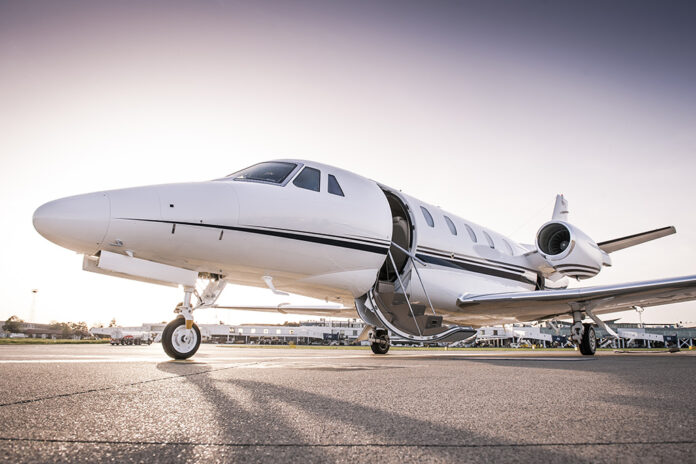Private jets have long been lightning rod for climate protesters, who brand them as polluting toys enjoyed by a tiny group of ultra-privileged travelers. For the company behind the popular Dassault Falcon model, banning the aircraft won’t solve the issue, while making them run on alternative fuel could help cut emissions.
One benefit of running private jets on so-called sustainable aviation fuel: occupants have the means to pay for it, given that the scarcity of so-called SAF has made the fuel significantly more expensive than standard kerosene, which could also be taxed more.
“Clients are willing to pay a bit more for kerosene that goes in the right direction and allows them to continue using these planes,” Dassault Aviation SA Chief Executive Officer Eric Trappier said at a briefing in Paris on Wednesday. “These are not luxury jets but business jets that allow big companies to better operate and better develop their business.”
Environmental groups are increasingly pointing fingers at private jets ferrying corporate executives and the wealthy few. The number of private-jet flights increased 64% last year, leading to an almost-doubling of CO2 emissions, according to a study conducted by Dutch environmental consultancy CE Delft and commissioned by Greenpeace in March.
Trappier said corporate passengers account for 80% of Dassault Aviation’s private-jet use, which he prefers calling “business jets.” Government officials account for another 10%, with only 10% of the planes being used by private citizens, he said.
The use of private jets became a hot topic in France last year, with some politicians proposing an outright ban. Even Bernard Arnault’s luxury-goods company LVMH was forced to sell its private jet in an effort to avoid unwanted Twitter attention.
“In France, there’s always a tendency to ban,” Trappier said. “When I see my US counterparts it makes them smile. In the US people rather believe in incentives and in innovation.”
Last year, Dassault Aviation reported orders for 64 of its Falcon business jets compared with 51 a year earlier. Dassault unveiled its largest, fasted and longest-range model in 2021, the Falcon 10X, which is expected to be ready for customers in 2025. The company competes with Bombardier Inc. and General Dynamics Corp.’s Gulfstream unit.
“Maybe there will be slightly fewer flights with sustainable fuels, but they have no alternative if they want to continue seeing their clients face to face,” Trappier said. “There still is a need. It’s not by train that you will cross the Atlantic.”
This article was provided by Bloomberg News.


